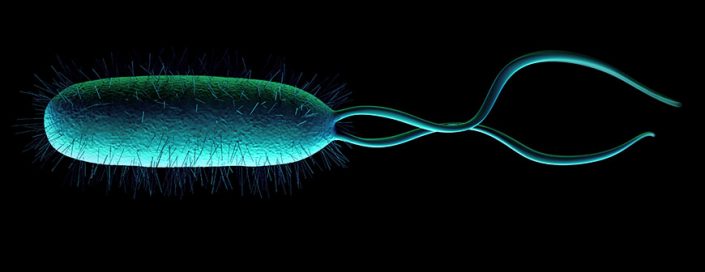Researchers seek new approaches for fighting germ that causes cancer

Image: College of Engineering
Two researchers in the Artie McFerrin Department of Chemical Engineering have received a High Impact High Risk Awards grant from the Cancer Prevention and Research Institute of Texas to study a different approach to fighting infections from Helicobacter pylori (H. pylori), a gram-negative bacterium that has been categorized as a class 1 carcinogen.
Nearly 60 percent of the world’s population is estimated to carry H. pylor, though few will develop symptoms or complications from the pathogen, which increases the risk of gastric cancer as well as other illnesses such as peptic ulcer disease and gastritis.
H. pylori infection is treatable with antibiotics, but there is a growing concern about the threat of antibiotic resistance, according to one of the researchers, Assistant Professor Pushkar Lele.
“Once someone contracts H. pylori it can persist lifelong unless the individual undergoes a combinative antibiotic course,” Lele said. “As bugs become more and more resistant to antibiotics, we might have a situation where a class 1 carcinogenic pathogen gains multi-drug resistance. That is a medical nightmare in the making.”
Lele will share the research grant with Arul Jayaraman, holder of the Ray B. Nesbitt Chair in the chemical engineering department.
A research team led by Lele will study the flagellum—a string-like appendage that enables a bacterium to swim— to identify its role as a sensor for mechanical cues that originate within the host.
According to Lele, understanding the process of sensing and how it promotes host colonization will provide vital insights that may help prevent H. pylori infections and avoid the possibility of increasing antibiotic resistance.

